MercoPress. South Atlantic News Agency
Environment
-
Sunday, April 14th 2019 - 08:38 UTC
NY Museum of Natural History embarrassed over a booking to honor Brazilian president Bolsonaro

New York’s Museum of Natural History said it was “considering its options” after discovering a private function booked to take place there would honour Brazilian President Jair Bolsonaro.
-
Saturday, April 13th 2019 - 07:44 UTC
Bolsonaro prepares to open Amazon reserve to mining: pledges no bureaucratic impediments
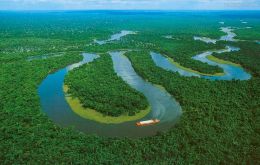
Brazilian President Jair Bolsonaro said on Friday the country could open a vast reserve in the Amazon rainforest to mining, a move attempted by his predecessor that was quickly rescinded following an international environmental outcry.
-
Friday, April 12th 2019 - 00:18 UTC
French court finds Monsanto legally responsible for ill health of farmer who ingested weed-killer

US biotech giant Monsanto is legally responsible for the ill health of a farmer who ingested its weed-killer product, a French court has ruled.
-
Thursday, April 11th 2019 - 09:15 UTC
Caimans on the loose in flash flooded Rio's favelas
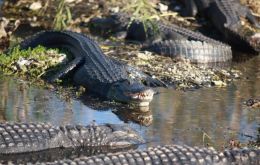
Residents of a hillside Rio de Janeiro favela risk finding hungry caimans at their front door after the city was hit hard by heavy flooding caused by torrential rain.
-
Wednesday, April 10th 2019 - 08:47 UTC
Torrential rain kills ten in Rio and leaves the city in a state of emergency

Torrential rain left at least 10 people dead in Rio de Janeiro, officials said on Tuesday, as emergency workers rescued people trapped by the downpour and clean-up efforts gathered pace.
-
Tuesday, April 9th 2019 - 05:36 UTC
Russia agrees to free orca and belugas held in “whale jails”
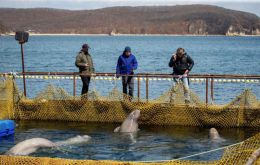
Russian officials said on Monday they will work towards freeing all orca and beluga whales from a notorious facility in the east of the country, after a visit by US-based marine mammal advocates.
-
Monday, April 8th 2019 - 09:40 UTC
Central London Ultra Low Emission Zone comes into force

The Ultra Low Emission Zone (ULEZ) has come into force in central London. Drivers of older, more polluting vehicles are being charged to enter the congestion zone area at any time. Transport for London (TfL) hopes the move will reduce the number of polluting cars in the capital, and estimates that about 40,000 vehicles will be affected every day.
-
Monday, April 8th 2019 - 06:20 UTC
Brunt Ice Shelf in Antarctic with BAS Halley Station is calving
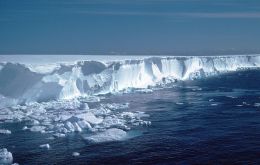
Glaciology experts have issued evidence that a large section of the Brunt Ice Shelf in Antarctica, which is home to the British Antarctic Survey's Halley Research Station, is about break off. The rifting started several years ago and is now approaching its final phase.
-
Saturday, April 6th 2019 - 09:58 UTC
Heavy rains with flash floods in northeast Brazil and in Paraguay
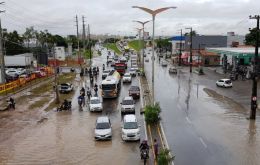
Civil defense officials have reported that heavy rains in northeastern Brazil have killed at least three people and displaced 3,600, while apparently unrelated flooding far to the south in Paraguay has forced some 20,000 people from their homes.
-
Saturday, April 6th 2019 - 09:17 UTC
Dutch campaigners hand Shell a lawsuit forcing it to meet Paris climate accords

Climate campaigners marched to Shell's headquarters in the Netherlands on Friday and handed the oil giant a lawsuit aimed at forcing it to meet targets in the Paris accord. Dozens of chanting activists went to the Anglo-Dutch firm's base in The Hague, where they delivered a legal summons with a court date set for Apr 17.
